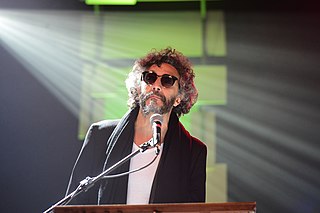
Rodolfo Páez, popularly known as Fito Páez, is an Argentine popular rock and roll musician and filmmaker.

María Natalia Lafourcade Silva is a Mexican singer and songwriter who performs in genres such as pop rock, jazz, and folk music. Since her debut in 2002, she has been one of the most successful singers in Latin America. Lafourcade's voice has been categorized as a lyric soprano.
Serú Girán was an Argentine rock supergroup. Formed in 1978, the group consisted of Charly García, David Lebón, Oscar Moro and Pedro Aznar the three first being already consecrated musicians through their previous bands. It is considered one of the best in the history of rock en español, both musically and conceptually, including the staging

Miranda! is an Argentine electropop band formed in Buenos Aires in 2001. Original band members include Alejandro Sergi, Juliana Gattas, Lolo Fuentes (guitar), Bruno de Vincenti (programming), and Nicolás Grimaldi (bass). It is currently a duo between Sergi and Gattas.

Divididos ("Divided") is an Argentine rock band. The band was formed in 1988 after the death of Luca Prodan and the consequent dissolution of the band Sumo. Ricardo Mollo and Diego Arnedo joined drummer Gustavo Collado to form a band named "La División", which would be later called "Divididos".

Los Twist was an Argentine rock group formed on March 30, 1982, in Buenos Aires. Their music was inspired in the rockabilly of the 1950s, and their lyrics contained strong political statements disguised with humor. The band officially broke up on April 30, 2012.

Soda Stereo was an Argentine rock band formed in Buenos Aires in 1982. The band's lineup consisted of lead singer and guitarist Gustavo Cerati, bassist Zeta Bosio, and drummer Charly Alberti. During their career, the band released seven studio albums before disbanding in 1997.

"Te Lo Agradezco, Pero No" is a song recorded by Spanish singer Alejandro Sanz and Colombian singer Shakira, for Sanz's eighth studio album El Tren de los Momentos (2006). It was released as the second single from the record in December 2006 by Warner Music Latina. The track was written by Sanz, while production was handled by him along with Lulo Pérez. "Te Lo Agradezco, Pero No" is the second duet recorded by the two singers, following "La Tortura" for Shakira's album Fijación Oral Vol. 1 (2005). The song came about after she approached Sanz, telling him that she wanted to collaborate on something different from her own material.
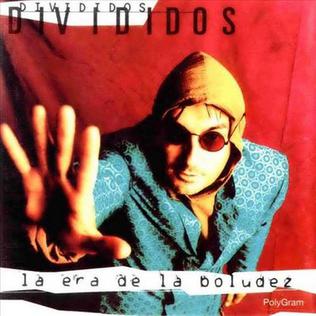
La era de la boludez [Age of stupidity] is a studio album released in 1993 by Argentine rock band Divididos. It contains a lot of the most famous songs by the group, as "El arriero", "¿Qué ves?" and "Salir a comprar". It is the best-selling album of Divididos, selling over 480,000 copies.

No Te Va Gustar, also known by their initials NTVG, is an Uruguayan rock band formed in 1994 in Montevideo. The group consists of lead vocalist and guitarist Emiliano Brancciari, bassist Guzmán Silveira, drummer Diego Bartaburu, trumpeter Martín Gil, trombonist Denis Ramos, tenor saxophonist Mauricio Ortiz, guitarist Pablo Coniberti and keyboardist Francisco Nasser. Considered as the most popular and international Uruguayan rock band, and one of the most recognized Latin American groups, No Te Va Gustar has released ten studio albums via Bizarro Records, four becoming a chart-topper in their native country.
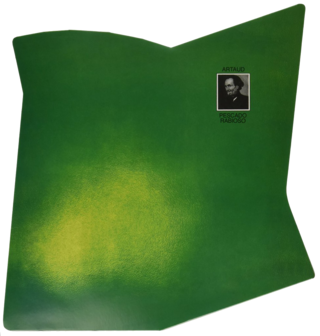
Artaud is a studio album credited to Argentine rock band Pescado Rabioso, released in October 1973 on Talent-Microfón. It is essentially the second solo album by singer-songwriter Luis Alberto Spinetta, who used the group's name despite their disbandment earlier that year.
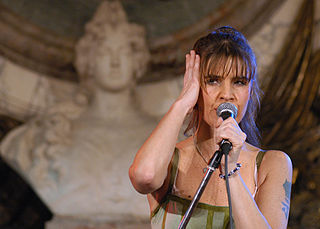
Fabiana Cantilo is an Argentine singer-songwriter. She has sold more than 6 million records in her career.

Félix Francisco Nebbia Corbacho, better known as Litto Nebbia is an Argentine singer-songwriter, musician and producer, prominent in the development of the early Argentine rock scene.

El amor después del amor , is the eighth studio album by Argentine musician Fito Páez, released in 1992. El Amor Después del Amor marked the pinnacle of his commercial success, also becoming the most sold album in the history of Argentine rock. In 2007, the Argentine edition of Rolling Stone ranked it 13 on its list of "The 100 Greatest Albums of National Rock".

"Te Extraño, Te Olvido, Te Amo" is a song recorded by Puerto Rican singer Ricky Martin for his third studio album, A Medio Vivir (1995). The song was written by Carlos Lara, while the production was handled by K.C. Porter. It was released to radio stations and on CD by Columbia Records as the lead single from the album on September 5, 1995. A Spanish language soft ballad, it is about the singer's dream woman who has left him and as he struggles to forget her, he becomes depressed. It received widely positive reviews from music critics, who ranked it among Martin's best ballads.

Almendra is the self-titled debut studio album by Argentine rock band Almendra which was released in 1969 on Vik, a subsidiary of RCA Victor. To distinguish it from the band's next release, Almendra II, it is also known as Almendra I. The album represented the first full-length musical endeavour of nineteen-year-old Luis Alberto Spinetta, having formed the band in the mid 1960s along with Emilio del Guercio, Edelmiro Molinari and Rodolfo García. The famous artwork, showing a crying man with a toy arrow stuck on his head, was designed by Spinetta to embody the different lyrical themes of the album.
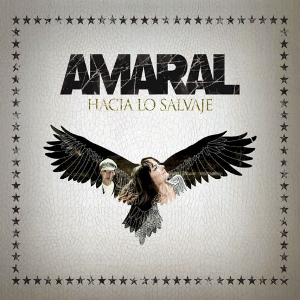
Hacia lo salvaje is the sixth studio album by the Spanish band Amaral. The songs were recorded in the duo's Madrid studio by Eva Amaral and Juan Aguirre, with the participation of Toni Toledo and Chris Taylor. The production was undertaken by Juan de Dios Martín, Eva Amaral and Juan Aguirre. Antonio Escobar was the synthesizer programmer. The album was mixed and mastered in New York by Michael Brauer in Electric Lady and Greg Calbi in Sterling Sound. It was the first album published under the new label created by the duo, Antártida, which was named after the song that the band were currently working on when they realised that they had not yet given their new label a name. Acoustic versions of all the songs were also recorded and released as bonus material

The 100 Greatest Albums of National Rock is a 2007 special issue of Rolling Stone Argentina, the local edition of the American magazine that is published monthly by S.A. La Nación. It was made available in newsstands on April 3. That month, Rolling Stone Argentina was issued as a special "double anniversary edition", with the list being released alongside the magazine's usual publication. The issue celebrated the forty years of Argentine rock and the nine years of Rolling Stone Argentina. In 2013, a revised "bookazine" edition of the list was released, incorporating more albums from the 2000s.

Mauro Ezequiel Lombardo, known professionally as Duki, is an Argentine rapper, songwriter and singer. He is the lead voice of Latin trap in Argentina, thanks to his multiple hits with his singles and his particular style of voice and staging.

El Último Tour Del Mundo is the third solo studio album by Puerto Rican rapper and singer Bad Bunny. It was released on November 27, 2020, by Rimas Entertainment, only nine months after the release of his previous record YHLQMDLG, which achieved both commercial success and critical acclaim. Comprising sixteen tracks, it is primarily a Latin trap and reggaeton album infused with a variety of rock music styles, and features guest appearances from Jhay Cortez, Rosalía, Abra, and Trío Vegabajeño. The album's title refers to how Bad Bunny imagined what his last concert tour would look like, as he imagined his final tour in the year 2032. The album was written and recorded during the COVID-19 quarantine and is a departure from Bad Bunny's aggressive reggaetón sound.



















